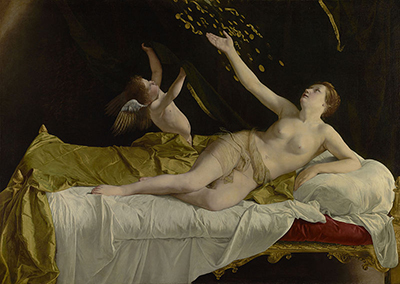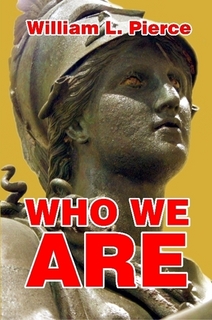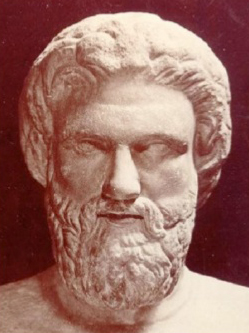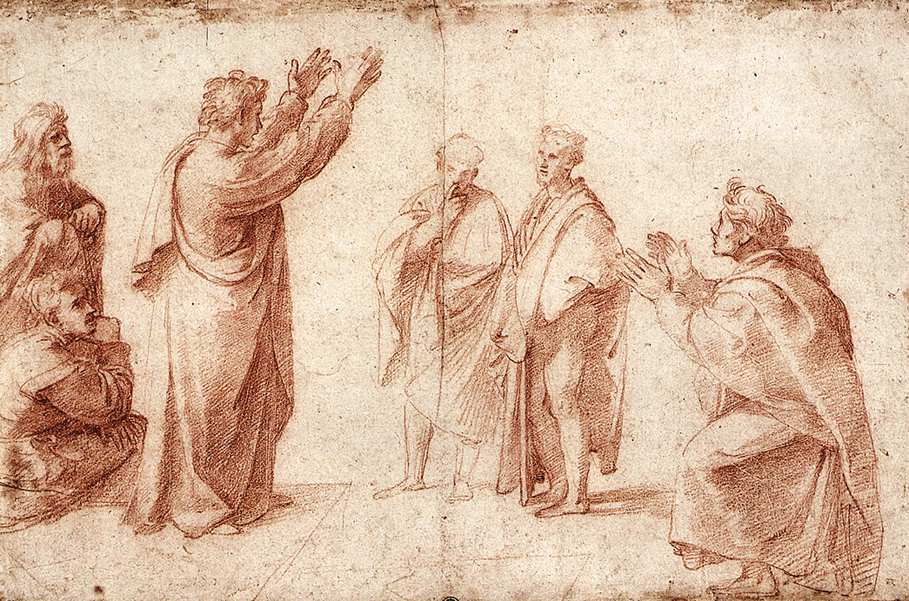by Mike Maloney
Chapter One:
The Battle of the Ages
Throughout the history of civilizations an epic battle has always been waged. It is an unseen battle, unknown by most of the people it affects. Yet, all feel the effects of this battle in their daily lives. Whether it be at the supermarket when you notice that a gallon of milk is a dollar more than it was last time, or when you get your heating bill and it has unexpectedly jumped by $50, you are feeling the effects of this hidden battle.
This battle is between currency and money, and it is truly a battle of the ages.
Most often this battle takes place between gold and silver, and currencies that supposedly represent the value of gold and silver. Inevitably people always think that currency will win. They have the same blind faith every time, but in the end, gold and silver always revalue themselves and they always win.
To understand how gold and silver periodically revalue, you first need to know the differences between money and currency.
Throughout the ages many things have been currency. Livestock, grains, spices, shells, beads, and paper have all been forms of currency, but only two things have been money. You guessed it: gold and silver.
Currency
A lot of people think currency is money. For instance, when someone gives you some cash, you presumably think of it as money. It is not. Cash is simply a currency, a medium of exchange that you can use to purchase something that has value, what we would call an asset.
Currency is derived from the word current. A current must keep moving or else it will die (think electricity). A currency does not store value in and of itself. Rather, it is a medium whereby you can transfer value from one asset to another.
Money
Money, unlike currency, has value within itself. Money is always a currency, in that it can be used to purchase other items that have value, but as we’ve just learned, currency is not always money because it doesn’t have value in and of itself. If you are having a hard time grasping this, just think about a hundred-dollar bill. Do you think that paper is worth $100?
The answer is, of course, no. That paper simply represents value that is stored somewhere else—or at least it used to be before our money became currency. Later we will study the history of our currency and the gold standard, but for now all you need to know is that the U.S. dollar is backed by nothing other than hot air, or what is commonly referred to as “the good faith and credit of the United States.” In short, our government has the ability to, and has been, creating money at will without anything to back it up. You might call this counterfeiting; the government calls it fiscal policy. The whole thing is what we refer to as fiat currency.
Fiat currency
A fiat is an arbitrary decree, order, or pronouncement given by a person, group, or body with the absolute authority to enforce it. A currency that derives its value from declaratory fiat or an authoritative order of the government is by definition a fiat currency. All currencies in use today are fiat currencies.
For the rest of this book I will use these proper definitions. At first it will sound strange to you, but it will only serve to highlight, and bring greater understanding of, the differences between currency and money.
Hopefully, by the end of the book you will see that it is the general public’s lack of understanding concerning this difference between currency and money that has created what I believe will be the greatest wealth accumulation opportunity in history What you will learn about currency and money in this book is knowledge that probably 99 percent of the population has no clue about or desire to learn. So congratulations, you will be way ahead of the game.
Inflation
When I talk about inflation or deflation I’m talking about the expansion or contraction of the currency supply. The symptom of monetary inflation or deflation is rising or falling prices, which I will sometimes refer to as price inflation or price deflation. Regardless, one thing is for sure. With inflation everything gets more valuable except currency.
Adventures in currency creation
Fiat currencies don’t usually start out that way, and those rare cases when they have were very short-lived. Societies usually start with high value commodity money such as gold and silver. Gradually, the government hoodwinks the population into accepting fiat currency by issuing paper demand notes that are redeemable in precious metals. These demand notes (currency) are really just “certificates of deposit,” “receipts,” or “claim checks” on the real money that is in the vault. I would venture to say that many Americans think this is how the U.S. dollar works today.
Once a government has introduced a paper currency, they then expand the currency supply through deficit spending, printing even more of the currency to cover that spending, and through credit creation based on fractional reserve banking (something we’ll cover later on). Then, usually due to war or some other national emergency, like foreign governments or the local population trying to redeem their demand notes (bank runs), the government will suspend redemption rights because they don’t have enough gold and silver to cover all of the paper they have printed, and poof! You have a fiat currency.
Here’s the dirty little secret: Fiat currency is designed to lose value. Its very purpose is to confiscate your wealth and transfer it to the government. Each time the government prints a new dollar and spends it, the government gets the full purchasing power of that dollar. But where did that purchasing power come from? It was secretly stolen from the dollars you hold. As each new dollar enters circulation it devalues all the other dollars in existence because there are now more dollars chasing the same amount of goods and services. This causes prices to rise. It is the insidious stealth tax known as inflation, robbing you of your wealth like a thief in the night.
Throughout the centuries, gold and silver have battled it out with fiat currency, and the precious metals have always won. Gold and silver revalue themselves automatically through the free market system, balancing themselves against the fiat currency in the process. This is a pattern that has been repeating and repeating since the first great currency crash in Athens in 407 B.C. Whenever an investor detects the beginning of one of these battles, the opportunities (according to history) to accumulate great wealth in a very short period of time are enormous.
It always seems to start the same way. Energy builds as the currency supply is expanded, and then, through natural human instincts, the coming crash is felt by the masses, and suddenly, in an explosive move and in a relatively short amount of time, gold and silver will revalue themselves to account for the currency that has been created in the meantime, and then some. If you see the writing on the wall and then take action before the masses do, your purchasing power will grow exponentially as gold and silver grow in value relative to an inflated currency. If you don’t, you’re in for a wipeout.
These heavyweight bouts between fiat currency and gold and silver can end one of two ways:
- A technical decision, where the fiat currency becomes an asset backed by gold or silver again.
Or:
- A knockout blow that is the death of the fiat currency.
Either way, gold and silver are always declared the victors. They are always the reigning heavyweight champions of the world. But you don’t have to take my word for it. Let’s see what history has to say.
It’s all Greek to me
Winston Churchill once said, “The farther backward you can look, the farther forward you are likely to see.” So in the spirit of Churchill, we are going to look back… way back to the time of the Greeks.
Gold and silver have been the predominant currency for 4,500 years, but they became money in Lydia, in about 680 B.C. when they were minted into coins of equal weight in order to make trade easier and smoother. But it was when coinage first made its appearance in Athens that it truly flourished. Athens was the world’s first democracy. They had the world’s first free-market system and working tax system. This made possible those amazing architectural public works like the Parthenon.
Indeed for many years the Athens star shone brightly. If you’ve studied your history, then you know they are considered one of the great civilizations of all time. You’ll also know that their civilization fell a long time ago. So what happened? Why did such a great and powerful civilization like Athens fall? The answer lies in the same pattern we can see time and time again throughout history: too much greed leading to too much war.
Athens flourished under their new monetary system. Then they became involved in a war that turned out to be much longer and far more costly than they anticipated (sound familiar?). After twenty-two years of war, their resources waning and most of their money spent, the Athenians came up with a very clever way to continue funding the war. They began to debase their money in an attempt to soldier on. In a stroke of genius the Athenians discovered that if you take in 1,000 coins in taxes and mix 50 percent copper in with your gold and silver you can then spend 2,000 coins! Does this sound familiar to you? It should… it’s called deficit spending, and our government does it every second of every day.
This was the first time in history that gold or silver had a price outside itself. Before the Athenians’ bright idea, everything that you could buy was priced in a weight of gold or silver. Now, for the first time, there was official government currency that was not gold and silver, but rather a mixture of gold or silver and copper. You could buy gold and silver with it, but the currency supply was no longer gold and silver in and of themselves.
Over the next two years their beautiful money became nothing more than currency, and as a consequence it became practically worthless. But obviously, once the public woke up to the debasement, anyone who had held on to the old pure gold and silver coins saw their purchasing power increase dramatically.
Within a couple of years the war that had started the whole process had been lost. Athens would never again enjoy the glory they once knew, and they eventually became nothing more than a province of the next great power, Rome.
And the very first regional heavyweight bout between currency and money goes to the “real money,” as gold and silver are crowned the “heavyweight champions of Athens”.
Rome is burning
Rome supplanted the Greek empire as the dominant power of its day, and during its centuries of dominance, the Romans had ample time to perfect the art of currency debasement. Just as with every empire in history, Rome never learned from the mistakes of past empires, and therefore they were doomed to repeat them.
Over 750 years, various leaders inflated the Roman currency supply by debasing the coinage to pay for war, which would lead to staggering price inflation. Coins were made smaller, or a small portion of the edge of gold coins would be clipped off as a tax when entering a government building. These clippings would then be melted down to make more coins. And of course, just as the Greeks did, they too mixed lesser metals such as copper into their gold and silver. And last but not least, they invented the not so subtle art of revaluation, meaning they simply minted the same coins but with a higher face value on them.
By the time Diocletian ascended to the throne in A.D. 284, the Roman coins were nothing more than tin-plated copper or bronze, and inflation (and the Roman populace) was raging.
In 301, Diocletian issued his infamous Edict of Prices, which imposed the death penalty on anyone selling goods for more than the government-mandated price and also froze wages. To Diocletian’s surprise, however, prices just kept rising. Merchants could no longer sell their wares at a profit, so they closed up shop. People either left their chosen careers to seek one where wages weren’t fixed, or just gave up and accepted welfare from the state. Oh yeah, the Romans invented welfare. Rome had a population of about one million, and at this period of time, the government was doling out free wheat to approximately 200,000 citizens. That equaled out to 20 percent of the population on welfare.
Because the economy was so poor, Diocletian adopted a guns and butter policy, putting people to work by hiring thousands of new soldiers and funding numerous public works projects. This effectively doubled the size of the government and the military, and probably increased deficit spending by many multiples.
When you add the cost of paying all these troops to the swelling masses of the unemployed poor receiving welfare and the rising costs of new public works projects, the numbers were staggering. Deficit spending went into overdrive. When he ran short of funds, Diocletian simply minted vast quantities of new copper and bronze coins and began, once again, debasing the gold and silver coins.
All this resulted in the world’s first documented hyperinflation. In Diodetian’s Edict of Prices (a very well preserved copy of which was unearthed in 1970), a pound of gold was worth 50,000 denari in the year A.D. 301, but by mid-century was worth 2.12 billion denari. That means the price of gold rose 42,400 times in fifty or so years. This resulted in all currency-based trade coming to a virtual standstill, and the economic system reverted to a barter system.
To put this in perspective, fifty years ago the price of gold was $35 per ounce in the United States. If it rose 42,400 times, the price today would be just under $1.5 million per ounce. In terms of purchasing power, that means if an average new car sold for about $2,000 fifty years ago, which they did, the average car today would sell for $85 million.
This signaled the second great victory for gold and silver over fiat currency in history. So there you go, gold and silver are now 2 and 0.
In the end it was currency debasement and pure deficit spending to fund the military, public works, social programs, and war that brought down the Roman Empire. Just as with every empire throughout history, it thought it was immune to the laws of economics.
As you will see, debasing the currency to pay for public works, social programs, and war is a pattern that repeats throughout history. It is a pattern that always ends badly.





